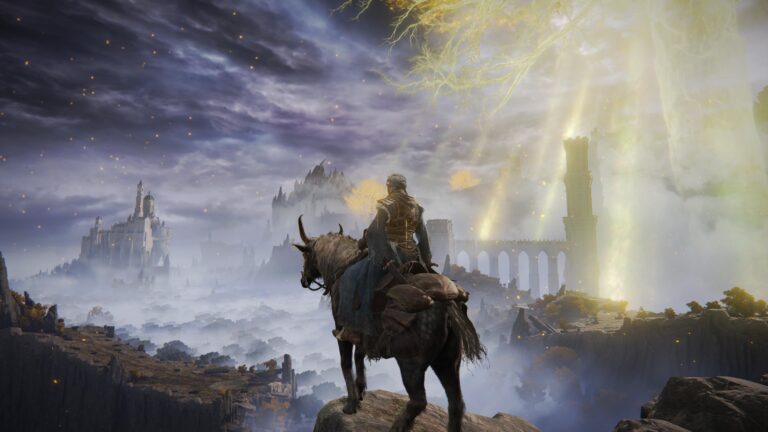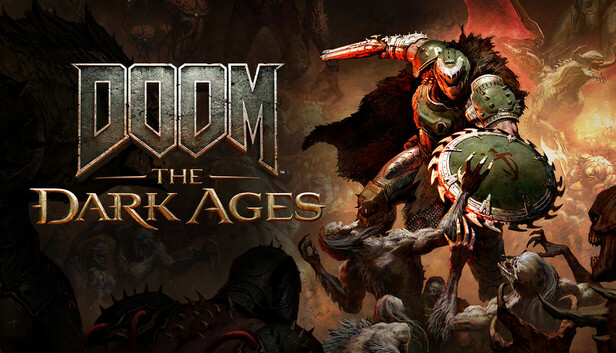Game data not found.
Dragon Quest V: Tenkuu no Hanayome is a masterpiece that stands as a testament to the enduring brilliance of the Dragon Quest series. Released initially for the Super Famicom in 1992, it has since seen remakes on the PlayStation 2, Nintendo DS, and mobile platforms. This entry in the legendary franchise is hailed for its rich narrative, innovative gameplay mechanics, and emotional depth, setting a benchmark for role-playing games (RPGs) worldwide. This article delves into the intricacies of the game, examining its story, gameplay, graphics, sound, and its lasting legacy.
Story
The story of Dragon Quest V is a multi-generational saga that spans the protagonist’s entire life, from childhood to adulthood. This unique approach allows the player to experience the evolution of the character, known as the Hero, and the world around him. The game begins with the Hero as a young boy traveling with his father, Pankraz, on a mysterious quest. The early moments introduce players to the world and lay the foundation for the Hero’s journey.
As the story unfolds, players witness the Hero’s growth, from the innocence of childhood to the responsibilities of adulthood. This narrative arc is divided into three main segments: the Hero’s childhood, his formative years, and his journey as an adult. Each phase is meticulously crafted, offering a deep emotional connection to the characters and the world.
A central theme of Dragon Quest V is the importance of family and legacy. The Hero’s quest is driven by the desire to uncover the truth about his past and to fulfill his father’s mission. Along the way, he encounters friends and allies, some of whom become integral parts of his journey, while others are lost to time. The story’s emotional depth is further enhanced by the introduction of a marriage system, where the Hero must choose a spouse. This decision not only influences the narrative but also impacts gameplay, as the chosen partner becomes a crucial ally in battles.
The Hero’s journey culminates in a quest to defeat the nefarious villain, Nimzo, and restore peace to the world. However, the narrative’s strength lies not just in its epic battles and dramatic twists, but in its ability to make players care deeply about the characters and their fates. The story of Dragon Quest V is a tale of love, loss, and redemption, resonating with players long after the game is completed.
Gameplay
Dragon Quest V introduces several innovative gameplay mechanics that distinguish it from its predecessors and contemporaries. At its core, it retains the series’ signature turn-based combat system, where players engage in strategic battles against a variety of enemies. However, it expands upon this foundation with the introduction of monster recruitment, a feature that was pioneering at the time and has since been adopted by many other RPGs.
The monster recruitment system allows players to recruit defeated monsters to their party. These monsters can then be trained and used in battles, adding a layer of depth to the gameplay. Each monster possesses unique abilities and stats, encouraging players to experiment with different combinations to find the most effective team. This mechanic adds significant replayability, as players can choose to recruit different monsters on subsequent playthroughs.
Another notable feature is the aforementioned marriage system. The choice of a spouse not only affects the narrative but also impacts gameplay. Each potential partner brings unique skills and benefits to the party, influencing battle strategies and enhancing the player’s connection to the game world.
Exploration is a key element of Dragon Quest V, with a vast world to discover filled with towns, dungeons, and secrets. The game encourages players to explore every corner, rewarding them with hidden treasures and side quests. The pacing of the game is well-balanced, with a mix of challenging battles, engaging story moments, and opportunities for exploration.
Graphics and Sound
For its time, Dragon Quest V boasted impressive graphics that pushed the capabilities of the Super Famicom. The game features colorful and detailed sprite work, capturing the charm and personality of the characters and the world. The environments are richly designed, with each town and dungeon offering a unique visual experience.
The game’s aesthetics are complemented by the iconic art style of Akira Toriyama, known for his work on the Dragon Ball series. Toriyama’s character designs bring a distinctive flair to the game, with memorable characters that are instantly recognizable.
The sound design of Dragon Quest V is equally noteworthy. The soundtrack, composed by Koichi Sugiyama, is a collection of memorable melodies that enhance the emotional impact of the story. From the stirring overture that plays during the opening credits to the haunting themes that accompany pivotal moments, the music is an integral part of the game’s identity.
Sound effects are also well-crafted, adding to the immersive experience. The clashing of swords, the roar of monsters, and the ambient sounds of towns and dungeons contribute to the game’s rich atmosphere.
Legacy and Reception
Upon its release, Dragon Quest V was met with critical acclaim in Japan, praised for its engaging story, innovative gameplay mechanics, and emotional depth. It quickly became a commercial success, solidifying the Dragon Quest series’ reputation as a cornerstone of the RPG genre.
Despite its popularity in Japan, the game did not see an official English release until the Nintendo DS version in 2009. This delayed introduction to Western audiences did little to dampen its impact, as the game was lauded by critics and players alike for its timeless story and engaging mechanics.
Dragon Quest V’s influence extends beyond its own series. The monster recruitment mechanic inspired future games, including the popular Pokémon series. Its narrative structure, which spans generations, has been emulated by other RPGs seeking to create a similarly epic scope.
The game’s enduring legacy is evident in its continued popularity. Remakes and ports have introduced Dragon Quest V to new generations of players, each iteration preserving the charm and depth of the original. The game’s impact is further cemented by its cultural significance in Japan, where it is often cited as one of the greatest RPGs ever made.
Conclusion
Dragon Quest V: Tenkuu no Hanayome is a seminal work in the RPG genre, offering a deeply engaging narrative, innovative gameplay mechanics, and a richly crafted world. Its story of familial bonds, personal growth, and heroism resonates with players, evoking a powerful emotional response.
The game’s legacy is cemented by its influence on subsequent RPGs and its continued popularity among fans. Dragon Quest V stands as a testament to the power of storytelling in video games, demonstrating that a well-crafted narrative can elevate a game to legendary status.
As players continue to discover and rediscover Dragon Quest V through its various remakes and ports, its impact remains as potent as ever. For both longtime fans and newcomers to the series, Dragon Quest V offers an unforgettable journey that exemplifies the very best of what the RPG genre has to offer.















